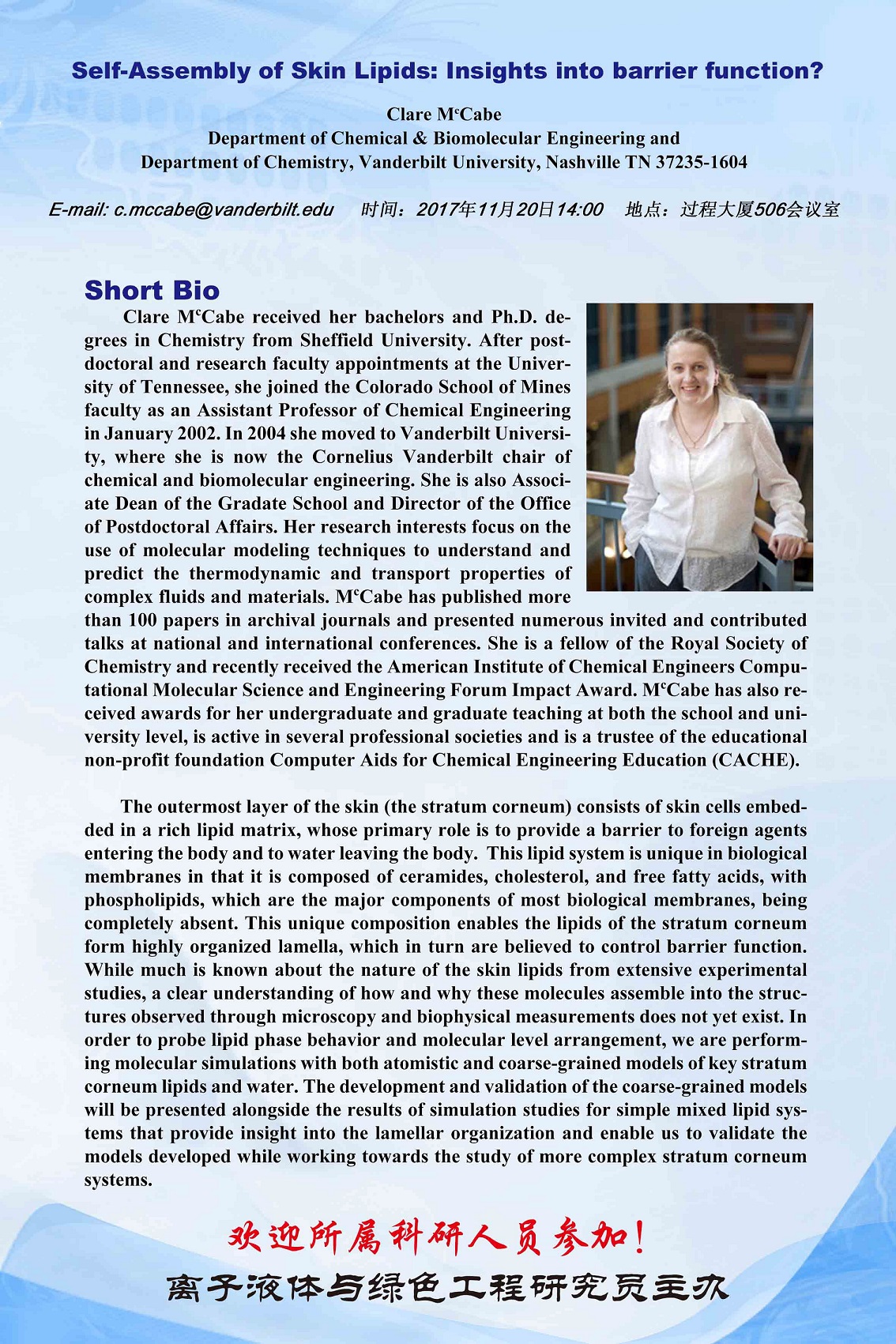Speaker: Dr. Clare McCabe
Date and Time: 14:00, November 20, 2017 Venue: Meeting Room 506, IPE Building Title: Self-Assembly of Skin Lipids: Insights into barrier function? Abstract:
The outermost layer of the skin (the stratum corneum) consists of skin cells embedded in a rich lipid matrix, whose primary role is to provide a barrier to foreign agents entering the body and to water leaving the body. This lipid system is unique in biological membranes in that it is composed of ceramides, cholesterol, and free fatty acids, with phospholipids, which are the major components of most biological membranes, being completely absent. This unique composition enables the lipids of the stratum corneum form highly organized lamella, which in turn are believed to control barrier function. While much is known about the nature of the skin lipids from extensive experimental studies, a clear understanding of how and why these molecules assemble into the structures observed through microscopy and biophysical measurements does not yet exist. In order to probe lipid phase behavior and molecular level arrangement, we are performing molecular simulations with both atomistic and coarse-grained models of key stratum corneum lipids and water. The development and validation of the coarse-grained models will be presented alongside the results of simulation studies for simple mixed lipid systems that provide insight into the lamellar organization and enable us to validate the models developed while working towards the study of more complex stratum corneum systems. About the speaker:
Clare McCabe received her bachelors and Ph.D. degrees in Chemistry from Sheffield University. After postdoctoral and research faculty appointments at the University of Tennessee, she joined the Colorado School of Mines faculty as an Assistant Professor of Chemical Engineering in January 2002. In 2004 she moved to Vanderbilt University, where she is now the Cornelius Vanderbilt chair of chemical and biomolecular engineering. She is also Associate Dean of the Gradate School and Director of the Office of Postdoctoral Affairs. Her research interests focus on the use of molecular modeling techniques to understand and predict the thermodynamic and transport properties of complex fluids and materials. McCabe has published more than 100 papers in archival journals and presented numerous invited and contributed talks at national and international conferences. She is a fellow of the Royal Society of Chemistry and recently received the American Institute of Chemical Engineers Computational Molecular Science and Engineering Forum Impact Award. McCabe has also received awards for her undergraduate and graduate teaching at both the school and university level, is active in several professional societies and is a trustee of the educational non-profit foundation Computer Aids for Chemical Engineering Education (CACHE). 
|